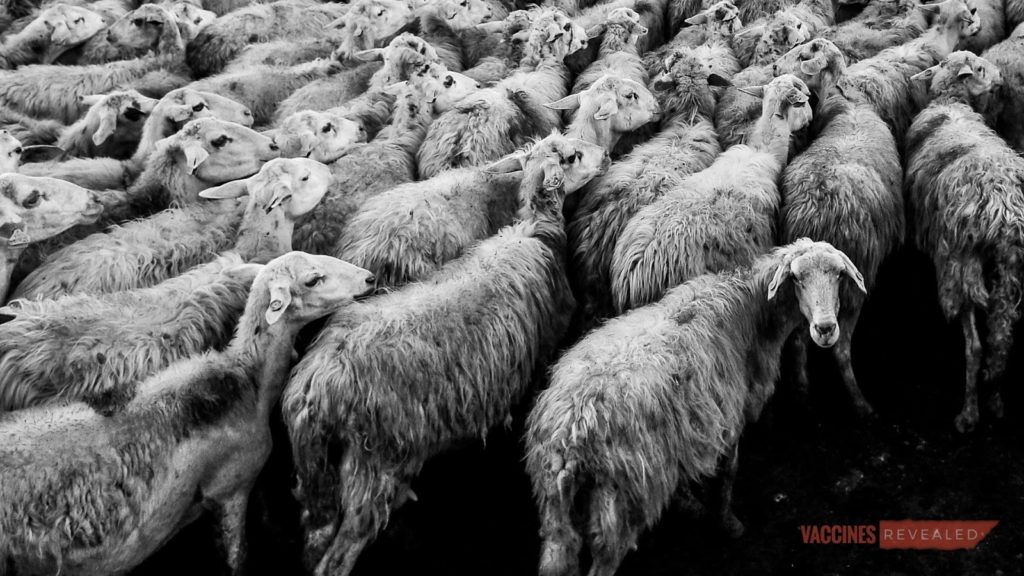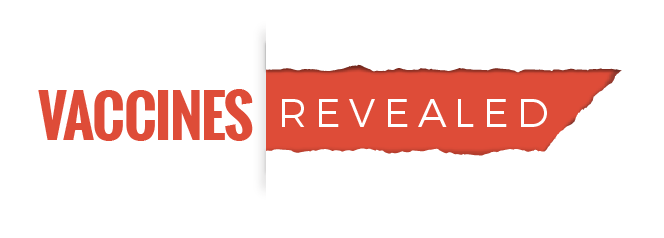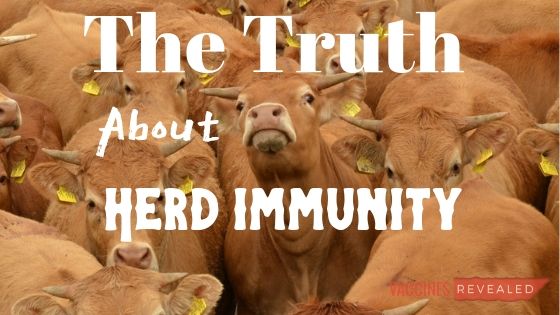What is “herd immunity,” and are vaccines a good way to achieve it?
You’ve probably heard the term before, and (aside from the indignity of being compared to cattle) it seems to make good sense. The idea is that when everyone is vaccinated against a contagious disease, the disease fades away and becomes extinct. In a society where vaccination rates are high, all people are protected because the disease can’t spread.
The problem is, it just doesn’t work—at least, not when the “herd immunity” depends on immunity produced by vaccines rather than by natural means.
Here’s the thing: the concept of “herd immunity” is not something that occurred with the invention of government inoculation programs. Rather, the term traces back to well before the days of vaccine records and shot schedules.
Herd immunity, it turns out, is a phenomenon that occurs naturally when people develop immunity to normal childhood diseases by contracting a virus, recovering, and sustaining the life-long immunity that only comes from your immune system being activated by natural means. The difference between natural herd immunity and vaccinated immunity is important.

Natural immunity creates “memory cells,” which provide lifelong protection against disease. In natural herd immunity, a person’s ability to fight a virus is strengthened throughout their life by the fact that the virus is still circulating—which gives immune people a natural boost from time to time and further strengthens their ability to ward off the disease. Strong antibodies are passed through breast milk to babies, protecting them in ways that vaccines do not.
Furthermore, when we contract an illness naturally, our immune systems gear up and attack on several fronts. The natural reaction to a virus creates a response that not only produces a much higher immunity to the disease, it also helps build the whole immune system. Our bodies evolved to deal with disease in this way, so that with each illness our immune systems fight more efficiently.
The problem with trying to create herd immunity with vaccines is that vaccines do not produce life-long immunity. The truth is that we can’t be sure just how effective immunity from vaccines might be, let alone how long immunity might last from shot to shot and from person to person. Variations in vaccine batches, individual immune responses, and a lack of imperial data on long term effectiveness all contribute to this problem.

The immune response to a vaccine is different from the response to naturally contracting a disease as well. Besides failing to provide reliable long-lasting immunity, vaccines produce an incomplete response that can confuse the immune system—and this can contribute to the development of autoimmune diseases in addition to incomplete immunity. Rather than strengthening our immune system the way natural viruses do, this reaction compromises it and can lead to long-term damage.
An excellent example of the failure of vaccines to provide herd immunity is the MMR vaccine. This article from the American Journal of Public Health discusses a case where an outbreak of measles occurred in a school with a 98 percent MMR vaccination rate. The article stated that this outbreak was found to be due to “vaccine failure,” and it subsided naturally within a short amount of time with no serious consequences to the students who became ill.
Diseases like measles and Chickenpox are mild in children, but can cause serious illness in adults. Trying to achieve herd immunity with vaccines leaves the population vulnerable, forced to choose between being dependent on additional “booster” vaccines (and the toxins and health hazards that go along with these drugs) or taking the risk of being exposed to a childhood disease at an age when we are more likely to suffer complications.
Clearly, this forced choice benefits vaccine manufacturers far more than it does the “herd” that’s supposed to be protected. Despite knowing the shortcomings of vaccine-induced immunity, pharmaceutical companies and lobbyists continue to fuel the myth that the only way to ensure a healthy society is to vaccinate.

